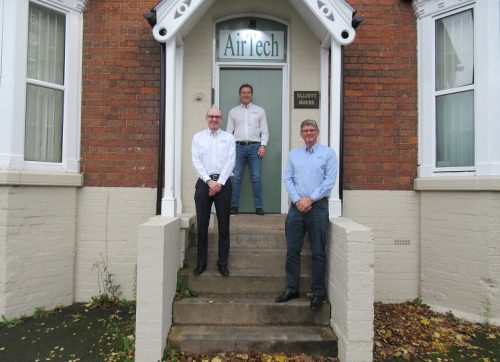Automation company moves to employee ownership model

Automation company Airtech Controls, based in Selly Oak, has been sold to an Employee Ownership Trust (EOT).
The newly-formed EOT – a special form of employee benefit trust – has acquired 100% of the company shares in a deal that will enable wider employee-ownership, albeit via an indirect holding.
The sale of Airtech Controls, which specialises in design and installation of building control systems, is part of a succession plan that the company says will help to protect the values and principles of the business – formed in 1996 by Martin Beer.
Together with Marcus Lindsay and Ian Jennings, Beer has grown the company to a turnover of approximately £4m a year.
Beer said: “The issue of succession planning has been on the agenda for a number of years and, as a management team, we’ve been considering a wide variety of options, including a management buy-out and sale to a third party.
“We’re extremely passionate about ensuring that the business is passed on to a group of individuals who will not only safeguard jobs but will also protect the values of Airtech Controls. Our employees are the best team to take that forward and, by adopting this model, it will mean that the Airtech way of doing business will continue.”
Airtech Controls was advised by Suk Aulak, partner at BDO, Paul Twist, associate director at BDO, and Gary Davie, partner at Legal Clarit.
Aulak said: “We’ve worked with Martin and the team for a number of years, as their accountants and tax advisers. We have assisted them with their on management and annual accounting, as well as tax matters, including Research & Development claims. We understand how important the issue of succession planning is to them, which is why an EOT was the natural choice in helping to preserve and enhance the company’s collaborative culture.”
Twist added: “An EOT is a very favourable business model for companies to consider. As all employees get an indirect stake in the company, there are substantial practical benefits associated with being owned by an EOT. It not only shares profit and reward, but also the responsibility for the health and success of the business among all employees.”
EOTs were introduced by the Government in September 2014 in an attempt to encourage more shareholders to set up a corporate structure similar to the John Lewis model.
An EOT allows employees to indirectly buy the company from its shareholders without them having to use their own funds – thereby creating an immediate purchaser and protecting the culture of a business.
Davie said: “Legal Clarity were delighted to support Martin and the team with this landmark transition for the business. Their open collaborative way of working will suit the EO model perfectly, and they have secured their way of doing business for the long term.
“As well as providing all the legal support to secure the sale/transition, I am also very much looking forward to working with the guys going forward as a trustee director, and helping bring the economic and other benefits of the model to life.”







